From Iran to Syria: Why fighting erupts again in Middle East and is peace still possible
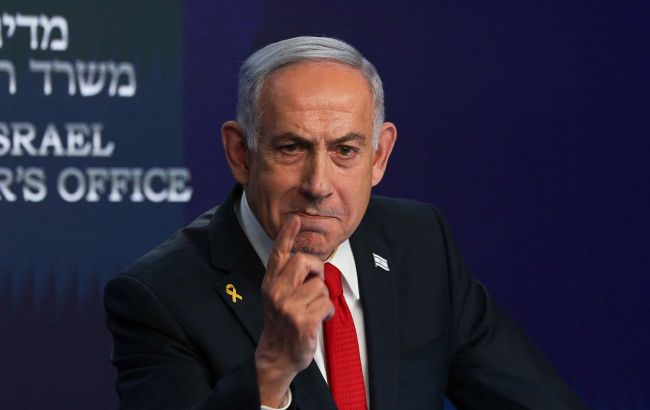 Israeli Prime Minister Benjamin Netanyahu (Photo: Getty images)
Israeli Prime Minister Benjamin Netanyahu (Photo: Getty images)
Why explosions are once again echoing through Syria, whether escalation between Israel and Iran may resume, when the war in Gaza might finally end, and whether peace in the Middle East is even possible - read in the article by RBC-Ukraine.
Key questions
- Why did Israel attack Syria?
- How did the conflict with Iran end?
- How is the Iranian regime "licking its wounds"?
- What’s happening with the Israeli operation in the Gaza Strip?
- Is stable peace in the Middle East possible?
Not even a month has passed since the end of the 12-day war between Israel and Iran, and the Middle East is already seeing a new flare-up. On July 16, the Israeli Air Force struck a number of targets in southern Syria, as well as the capital, Damascus.
Israel carried out these strikes to protect the Druze, one of the ethno-religious minorities living in northern Israel and southern Syria. On Sunday, July 13, armed clashes broke out there between the Druze and local nomadic tribes over a minor incident. The latter were backed by pro-government forces. Fierce fighting ensued, killing at least 100 people. Though Druze leaders have already begun to call for de-escalation.
It's been less than a year since the Assad regime fell, so Syria's new government has yet to bring order to the country. During the civil war, dozens of armed groups emerged across Syria, many of which still don't answer to the central government. One of them, in fact, was the group that sparked the clashes with the Druze.
All these developments cast serious doubt on the normalization of Israeli-Syrian relations, which had only just begun. On the other hand, they illustrate just how fragile peace in the region remains. Still, if we set the situation in Syria aside, calm in the Middle East may now be closer than at any time in recent years, at least for a while.
Winning battle, not war
During the 12-day war, Israel, with US backing, achieved a decisive victory over Iran, according to experts interviewed by RBC-Ukraine. Most of Iran's nuclear facilities were destroyed or severely damaged. In addition, the Shiite Axis of Resistance, built by Iran to extend its influence through various proxy groups in Syria, Lebanon, and Yemen, was dismantled.
According to Israeli military expert David Sharp, Iran suffered a defeat, including to its reputation, but it wasn't a total rout.
"Its military capabilities were significantly reduced, but that doesn't mean Iran is currently incapable of attacking Israel. Iran can strike Israel with ballistic missiles, with drones, and can do so fairly intensively. Iran lost only a battle in a war that continues," Sharp explained.
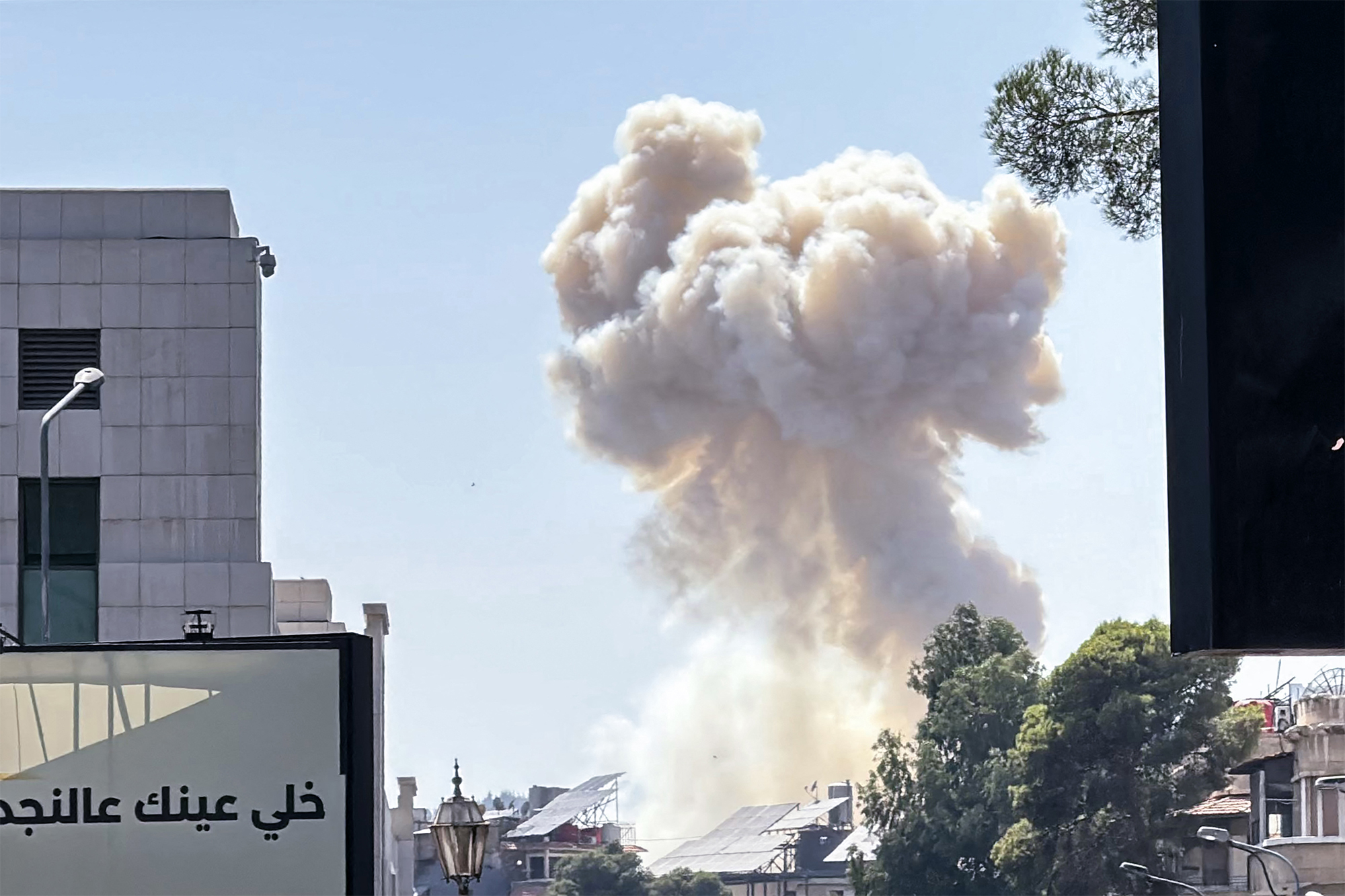 Aftermath of the Israeli strike on Damascus, July 16 (photo: Getty Images)
Aftermath of the Israeli strike on Damascus, July 16 (photo: Getty Images)
At the same time, questions arise regarding the objectives Israel and the United States pursued but failed to fully achieve during the war, said foreign policy expert and Middle East scholar Yevhen Dobriak.
"This involves ensuring security and sustainable development in the region. Iran's missile program was not completely destroyed, even though it suffered significant damage. We also haven't seen a clear stance from Iran on halting the funding and support of its proxy groups (Axis of Resistance - ed.)," Dobriak said.
Ultimately, the ideological cornerstone of the Iranian regime remains the destruction of Israel. And the Islamic Republic's regime in Iran still stands, despite Israeli leaders calling on the Iranian population to overthrow it.
To some extent, the United States acted as a moderating force. Immediately after the strike on Iran's underground nuclear facilities, US President Donald Trump announced the end of the war.
Iran 'licking its wounds'
During the war, Israel destroyed a significant portion of Iran's military command, but did not strike the political leadership. Though the latter suffered reputational damage, the risks to the regime inside the country are minimal, said Iranian political analyst Amir Chahaki, who lives in Berlin.
Still, the divide between Iran's rulers and its people continues to grow.
Although the destruction of the Zionist regime is one of the pillars of Iran's foreign policy, the country's population is largely indifferent to the issue. According to Chahaki, among some radical segments of the population, the elimination of Iran's military leadership was even welcomed as a potential precursor to regime change. But overall, Iranians were more concerned with preserving their lives and livelihoods.
In Chahaki's view, Israel made a strategic mistake by calling on the Iranian people to overthrow their government. For instance, appeals referencing historical heritage and mentioning Cyrus the Great were met with confusion due to the proud mentality of Iranians. Moreover, Israeli strikes killed civilians as well.
"When you're at war and you kill military leaders while urging regime change, you're essentially giving security forces ammunition to label any dissent as being orchestrated by Netanyahu," Chahaki told the media outlet.
Meanwhile, Iran's leadership is working to restore its international standing. It has resumed nuclear talks with the US, negotiations that were underway even before Israel's strikes but were paused during the war.
An anonymous Trump administration official told The Washington Post that Iran is ready to make a deal on the nuclear issue, despite the earlier attacks by the US and Israel.
Sources from War on the Rocks report that Tehran is prepared to return to the 3.67% uranium enrichment cap set by the 2015 deal for civilian purposes in exchange for sanctions relief and enhanced IAEA monitoring.
The problem is that it was Trump who once withdrew from that deal, calling it a bad one. Now, the US President would have to justify agreeing to similar terms. Thus, the Trump administration insists on "zero enrichment" by Iran as a non-negotiable condition, which is, in turn, a red line for Iran.
Trump's Special Envoy to the Middle East, Steven Witkoff, said talks could begin "very soon, within the next week or so." Meanwhile, Iranian Foreign Minister Abbas Araghchi said Iran is open to negotiations, but only with guarantees that new attacks won't happen again.
According to Amir Chahaki, Iran understands the vulnerability of its current position and is willing to strike a deal, but domestic politics complicate things.
"Iran is looking for a way to accept America's terms gracefully, so it can justify them to the country's ultraconservatives. They're a minority, but make up about 15-20% of Iranians who wanted to see Khamenei (Iran's Supreme Leader - ed.) triumph like before, when Iran pursued the strategy of a threshold state," said Chahaki.
This strategy meant that Iran didn't build nuclear weapons but always kept the option on the table to leverage advantages on the world stage.
Has threat from Iran disappeared
"Today, Iran is unlikely to launch a surprise strike on Israel of its own initiative. It's not impossible, but it would go against military logic, not least because Iran took a hard hit, and its air defenses proved totally ineffective against Israeli air power," said David Sharp.
According to him, Iran now needs to rebuild its defense capabilities and correct the issues that left its air defenses exposed. That's a long and costly undertaking, and it's not even clear how to fix those vulnerabilities. Sharp suggests Iran might take a tactical pause in its confrontation with Israel, perhaps until Trump's current term ends.
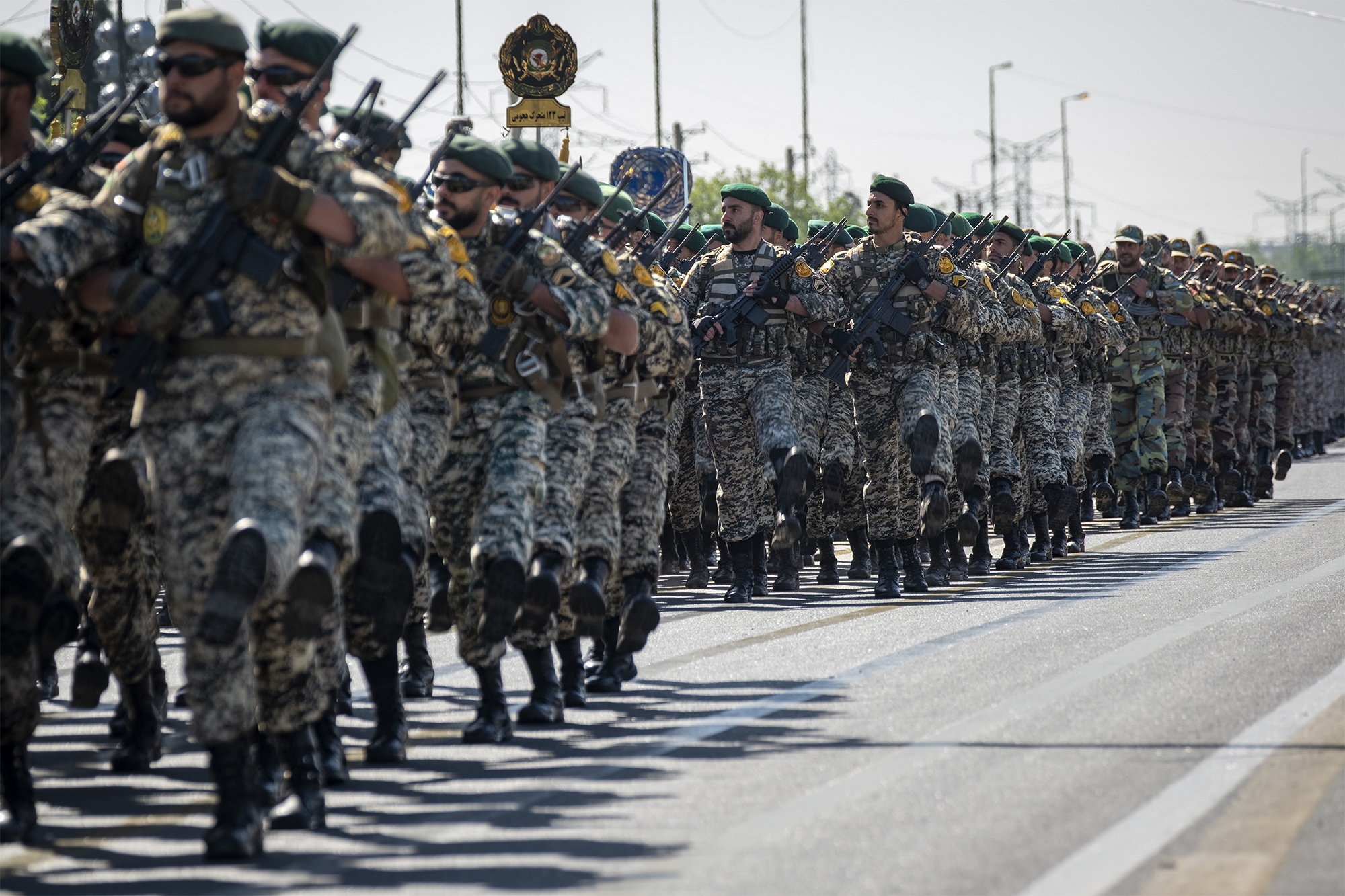 Iranian soldiers at a military parade (photo: Getty Images)
Iranian soldiers at a military parade (photo: Getty Images)
Another restraining factor for Iran is the weakening of its allied organizations in Lebanon, Iraq, and Yemen. As early as last year, Israel destroyed the leadership and a significant portion of the military capabilities of Hezbollah and Hamas. In Syria, the pro-Iranian regime of Bashar al-Assad has collapsed. Currently, the only real threat might come from Yemen's Houthis, who occasionally fire missiles at Israel. That danger may persist.
The Houthis are also attacking ships passing through the Red Sea, which disrupts global trade. However, this is not just Israel's problem, and other countries may be involved to help resolve it.
That said, we shouldn't rule out Iran trying to orchestrate terrorist attacks against Israeli citizens or diplomatic missions abroad - something it has done before. Think of the 1994 bombing of the Israeli cultural center in Buenos Aires or the 2012 bus bombing of Israeli tourists in Bulgaria.
Everything now depends on the approach Israel takes toward Iran. Jerusalem is ready to resume strikes but will likely do so only when Iran's missile or nuclear programs show significant progress.
"Clearly, Israel won't waste time on minor provocations to go after Iran. Iran isn't Hamas or Hezbollah, where you can take out fighters on a daily basis," Sharp said.
Israel also has other priorities. For example, it needs to rebuild its intelligence network inside Iran, part of which was exposed during the 12-day war.
Expanding Abraham Accords
One way to help Israel counter Iranian influence would be to form alliances with other countries in the Middle East. This began during Trump's first term, with his active mediation. In 2020, Israel signed a series of bilateral agreements normalizing relations with the UAE, Bahrain, Sudan, and Morocco. These became known as the Abraham Accords, named after the biblical patriarch considered a shared forefather by Jews, Christians, and Muslims. The name reflects the idea of historical and spiritual unity and a shared drive for peace.
Like Israel, Iran's Arab neighbors have long been troubled by its nuclear ambitions. So during the 12-day war, they didn't back Tehran.
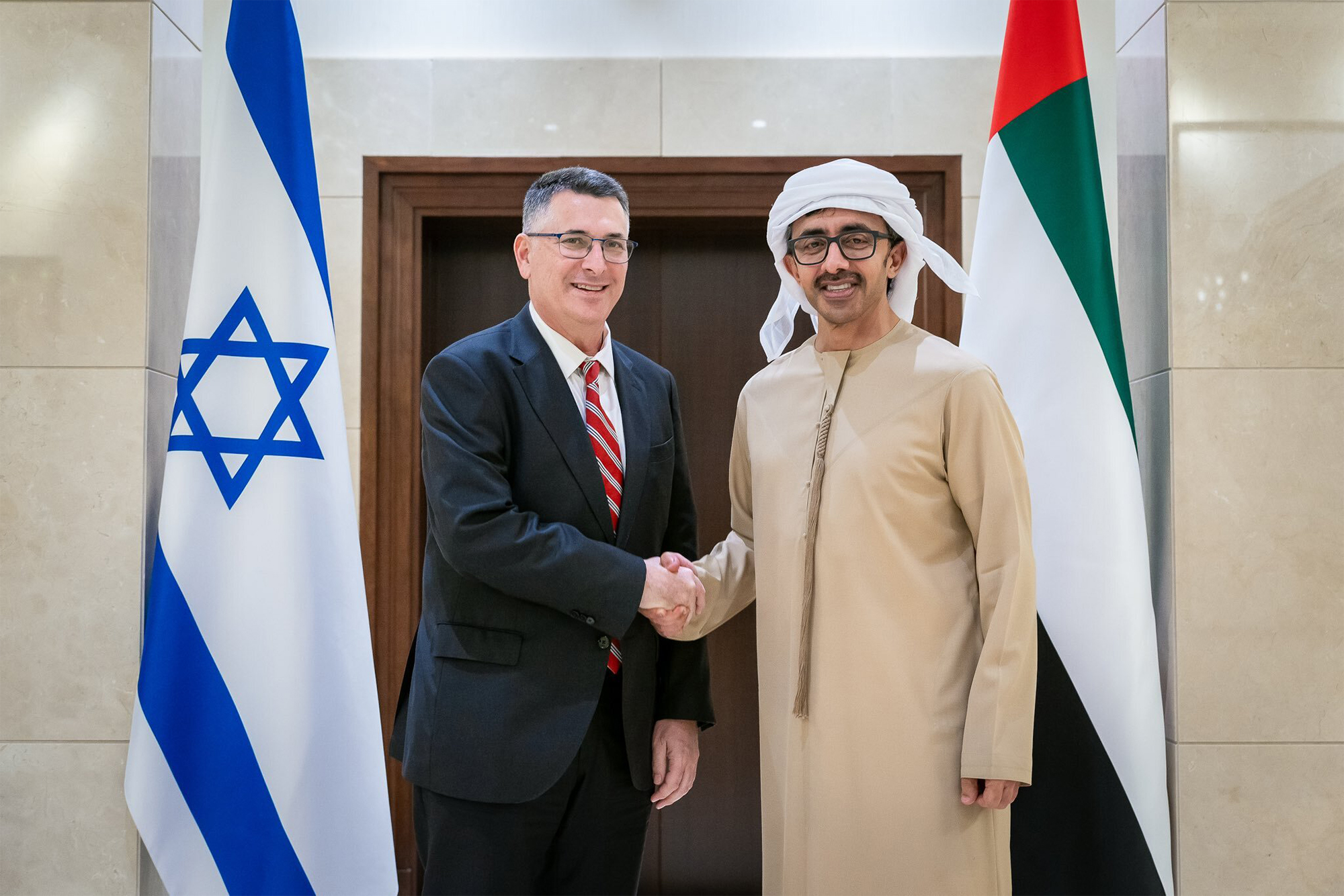 UAE Foreign Minister Sheikh Abdullah bin Zayed and Israeli Foreign Minister Gideon Sa'ar (photo: Getty Images)
UAE Foreign Minister Sheikh Abdullah bin Zayed and Israeli Foreign Minister Gideon Sa'ar (photo: Getty Images)
"Behind the scenes, Arab states were very interested in seeing Iran’s nuclear program dismantled and its regional proxy groups seriously weakened," Yevhen Dobriak told RBC-Ukraine.
That's why there's talk of expanding the Abraham Accords to include more countries.
"If that happens, it will completely redraw the map of the Middle East and transform Israel's position in the region. Israel would be surrounded, if not by friendly, then at least non-hostile countries," Israeli Ambassador to Ukraine Michael Brodsky said in an interview with RBC-Ukraine.
Syria was closest to joining before. After the fall of Bashar al-Assad's regime, the new Syrian government has tried to bring the country out of international isolation. Current President Ahmed Ash-Sharaa is engaging with numerous regional leaders, including Israel. But the latest escalation over the Druze issue is likely to delay talks.
Normalization with Lebanon is even harder. That's mainly because the pro-Iranian group Hezbollah plays a key role in the country's political system. It's not only a militant group but also a political party backed by Lebanon's Shiite community.
Finally, there are prospects for establishing diplomatic relations between Israel and Saudi Arabia - one of the region's economic powerhouses. The escalation with Syria negatively impacts this track as well, but for the Saudis, there's a more pressing issue.
"Talks between the Saudis and Israelis have been ongoing and productive for a while, but formalizing them is tricky because one of Saudi Arabia's key demands to join the 'Abraham Accords' and create a zone of stability and sustainable development in the region is, of course, resolving the Palestinian issue," Dobriak said.
Battle for Gaza
Since late 2023, Israel has been conducting military operations in the Gaza Strip. The campaign began in response to a Hamas terrorist attack against Israel and the taking of hostages. Most of the group's military leaders and many fighters have since been killed. However, Hamas has not yet been completely defeated.
Israel's leadership has a clear goal: Hamas must no longer exist in Gaza as an organized military force. Under these terms, Israel is even willing to compromise.
"Our position hasn't changed since the start of the operation - the release of all hostages and the end of Hamas rule in Gaza. If we can reach an agreement on those two points, we're open to a deal - as long as Hamas no longer controls Gaza and Gaza no longer poses a threat to Israel,” Ambassador Michael Brodsky told the media outlet.
Hamas, on its part, is willing to give up political power, but the group's priority is preserving its military strength. So it isn't ready for an honorable surrender that would include disarmament and the exile of its political wing. Negotiations over this are ongoing in Qatar, mediated by the US. But progress is minimal. Hamas still holds about 20 live Israeli hostages - its only leverage.
"The only thing that might convince Hamas to consider an honorable surrender is sustained military pressure and a readiness to go all the way to destroy the group. Otherwise, we're in for a surprise," said Sharp.
So far, the expert sees no such determination from the Israeli government. Among other things, the hostage issue plays a big role. Not all Israelis support fully occupying Gaza, even temporarily. Plus, the ruling coalition is fragile and could fall apart at any moment.
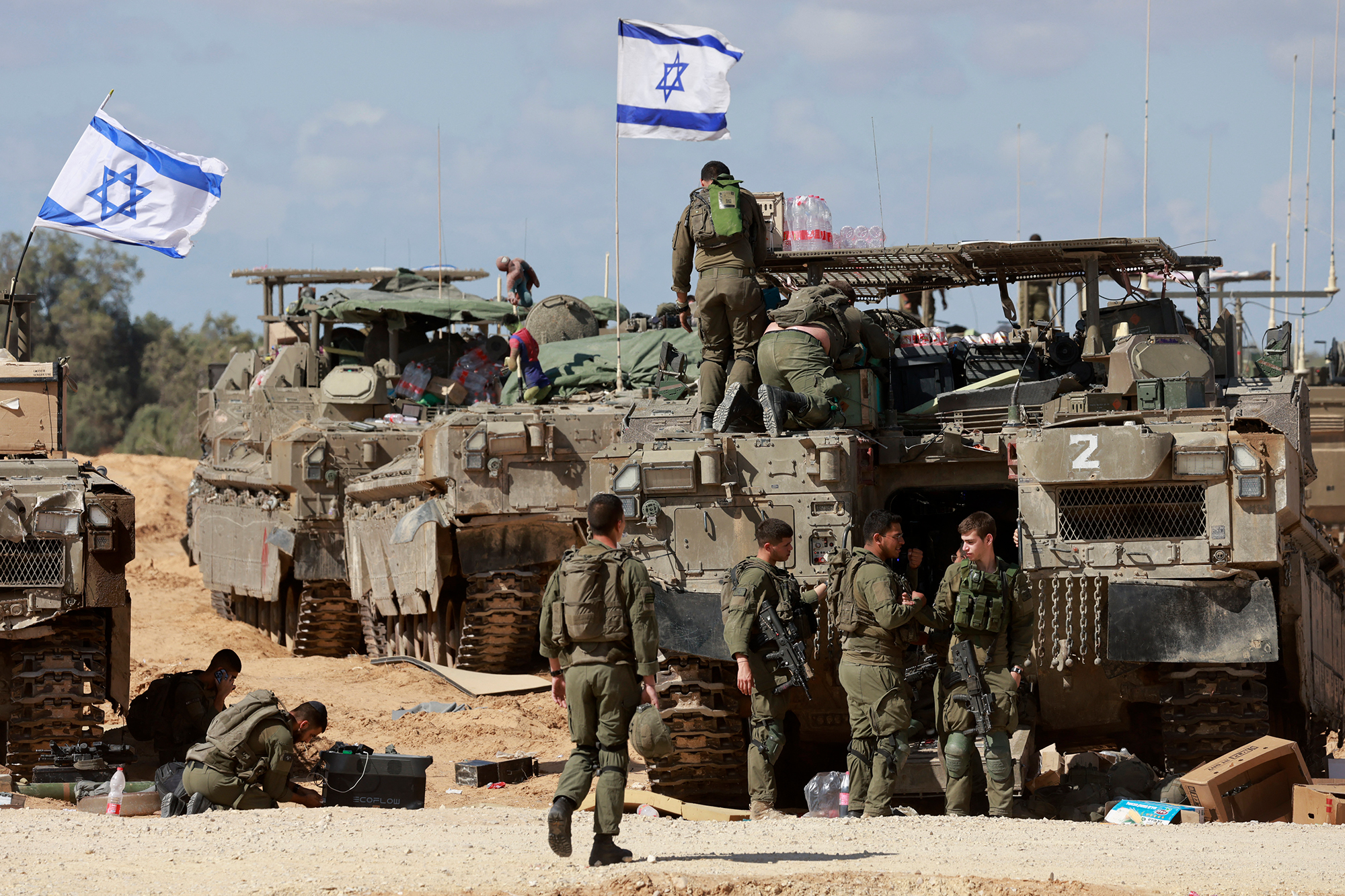 Israeli army near the Gaza Strip (photo: Getty Images)
Israeli army near the Gaza Strip (photo: Getty Images)
Moreover, many in Israeli society believe that Prime Minister Benjamin Netanyahu does not benefit from ending the Hamas story, since afterward he would have to answer for the failure of October 7, the deadliest terror attack in Israel's history, and face trial for multiple corruption charges.
There is still no clear plan for what to do with Gaza after Hamas's military wing is dismantled - either in Gaza itself or the West Bank, where the relatively Israel-friendly Palestinian Authority (PA) is still in power. Even among locals, not everyone supports the PA.
On July 6, five leading sheikhs from the Hebron area sent a letter to Israel's government expressing their wish to secede from the Palestinian Authority and create an emirate in Hebron, joining the "Abraham Accords." The plan hasn't been implemented yet, but if it moves forward, it could trigger a host of new problems.
"There are lots of complex issues here. Would it help or hurt? Maybe an emirate under Israeli control, as they propose, could stabilize the situation. But there are many forces, internal and external, that would oppose it," said Yevhen Dobriak.
US involvement could give talks with Hamas a new push, with certain limits.
"First, the US can signal to Hamas that Israel has the green light to keep going. The US can pressure Qatar, which is a key influence on Hamas. Qatar is essentially a Hamas sponsor - its leadership is based there and so on," Sharp told the media outlet.
Still, even Qatar is not a simple player. The emirate itself has leverage over American politics - through its business ties with people close to the US President.
***
Overall, the current situation in the Middle East resembles a house of cards. Recently built, it seems to hold, but there are many pressure points inside that could cause it to collapse. Not to mention the external forces that constantly introduce chaos.
What helps keep things together, for now, is the fact that most regional leaders have long experience operating under such conditions, which has sharpened their flexibility. Open military conflict, where possible, and backroom diplomacy elsewhere have often prevented total collapse in the past. That goes for Israel, Iran, and the Arab states alike. Still, the region is changing rapidly, and new conflicts are almost certainly on the horizon.
Sources: statements from Israeli and Iranian politicians, publications from The Washington Post, War on the Rocks, CNN, The Times of Israel, Tehran Times, Al-Monitor, and interviews with Michael Brodsky, David Sharp, Amir Chahaki, and Yevhen Dobriak.

